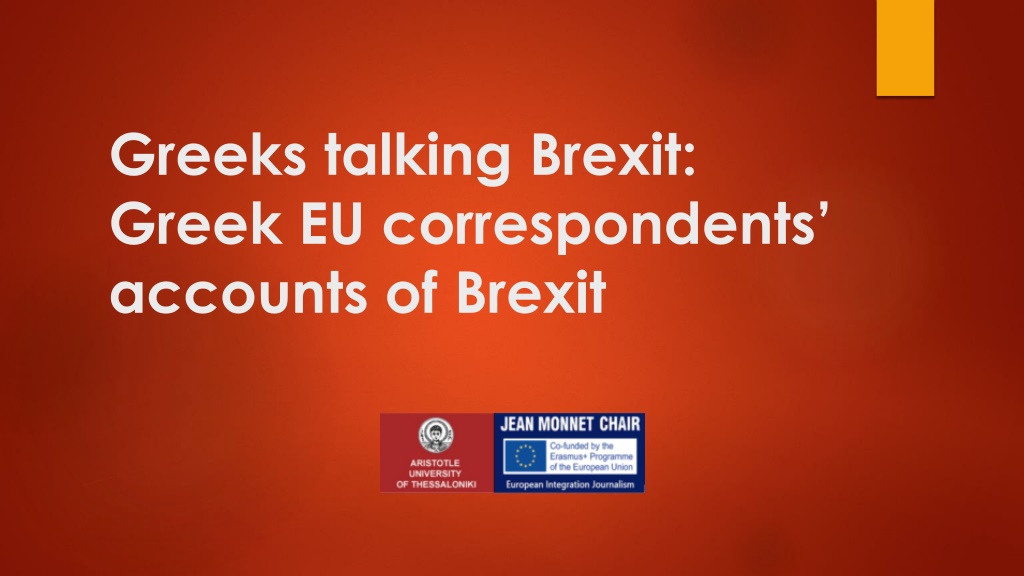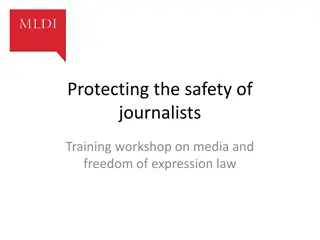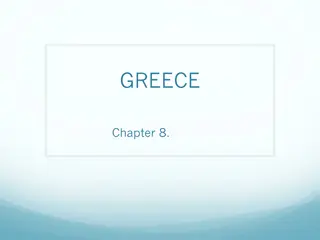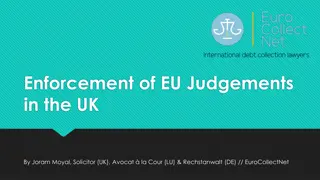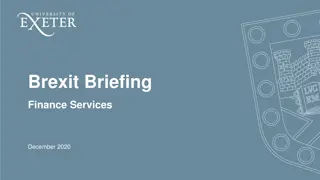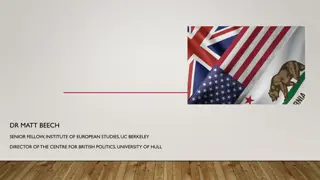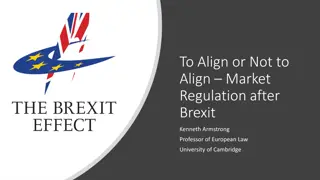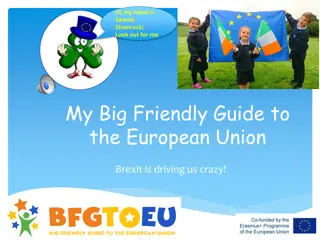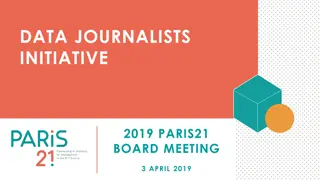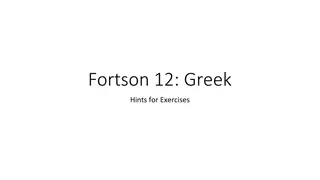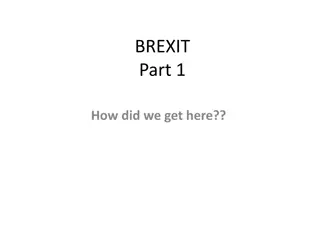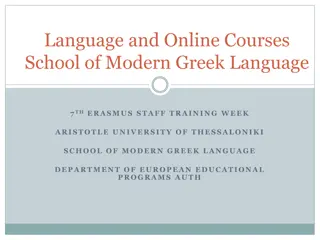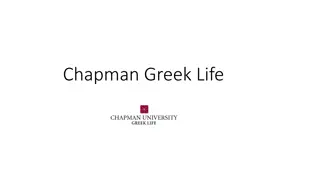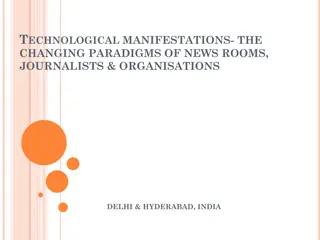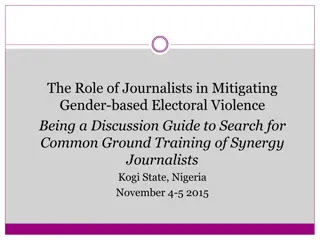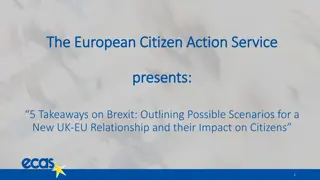Greek Journalists' Perspectives on Brexit and EU Affairs
Greek journalists share insights on the impact of Brexit, EU affairs coverage, and challenges in reporting European news. Discussions include agenda-setting strategies, journalistic ethics, and the need for more engaging EU journalism amidst a media crisis. Journalists emphasize the importance of informing and engaging audiences on European issues while adapting content for national readerships.
Download Presentation

Please find below an Image/Link to download the presentation.
The content on the website is provided AS IS for your information and personal use only. It may not be sold, licensed, or shared on other websites without obtaining consent from the author. Download presentation by click this link. If you encounter any issues during the download, it is possible that the publisher has removed the file from their server.
E N D
Presentation Transcript
Greeks talking Brexit: Greek EU correspondents accounts of Brexit
Journalism and EU affairs Agenda setting strategies European public sphere European identity EU affairs coverage The role of the journalist Quantitative research Content analysis and fully structured interviews The effects assumption
Brexit as a reflection of Britains relation to the EU The social, political and financial impact of Brexit Britain and EU integration in academic discourse Political Sicence History Media Studies Cultural Studies
Methodological Note Qualitative study with 8 (/20) Greek journalists including Correspondents of national media in Brussels Journalists who work for transnational media Interviews agenda Analytical Strategies Thematic analysis Discourse analysis
Cosmopolitanism and Ethics in journalists constructions of EU affairs coverage Cosmopolitan identities and journalistic practice The first thing I do before getting out of bed is check my news alerts. [ ] If you don t love news journalism, if you are not interested in what happens around the world you can t do news journalism. In Greece, even those who love doing news journalism, senior journalists included, do only domestic news The good EU journalist I was always into investigative journalism, to ask, study, look for information out there; and I find very boring the way people cover EU affairs, and as a reader I don t like boring Barnier statements or details about Brexit- you have to make it sexier J8 (National media) Agency in reporting EU affairs I feel lucky because I have an editor-in-chief that likes EU oriented topics and he thinks they are important for the paper and asks for them. It s not though a typical this practice - J8 (National media) we want an agenda that is European, but all this has to be adapted to your [national] audiences, I mean I have to build a European agenda that I will be able to communicate to Greek audiences J4 (Transnational broadcaster)
Media crisis, media cultures, and the EU narrative The (Greek) media culture There is a huge media crisis, that is not about being a good journalist or not; [journalists] reproduce [AP] news because there is no means [to conduct primary research], and there is no interest in investing in proper news production. J4 (Transnational broadcaster) Journalists skills, education and capital reading a good piece on EU affairs ,should make you wiser, more knowledgeable about the EU; and it should explain why [what it says] is important - J7 (Transnational media)
Media crisis, media cultures, and the EU narrative Reflections on EU communication deficit EU affairs is often blurred, [something] created by the EU mechanisms themselves. [ ] Sometimes Europe communicates nonsense to make an impression. - J1 (National broadcaster) Reflections on the assumption of a democratic deficit people are convinced because their leaders, some parties look for scape goats, and exactly because Brussels is far, it s easy to target mean Brussels who impose something on us - J4 (Transnational media)
Aspects of Literacy in journalists coverage of EU affairs Knowledge about Brexit, the UK and its relationship to the EU It also has to do with the source you choose to read from about a topic. It s a different to read the financial times and a different thing to read the Guardian J5 (National Press) Projecting professionalism and cosmopolitanism I had the chance to meet colleagues from large media corporations and very popular most of them and they were positive that Brexit would happen J6 (Transnational media) I worked a lot on post-Brexit era, what will happen if the UK goes on elections now; I talked with journalists like Paul Mason and Hugo Dixon, we went to the LSE and talked about the financial consequences of Brexit J2 (National Broadcaster)
Aspects of Literacy in journalists coverage of EU affairs Asserting cultural, political and educational capital I ve followed Brexit from a distance but I have a personal interest for Britain, I ve been travelling a lot there - J6 (transnational media) I proposed to do a piece about the marbles [Elgin marbles], I have studied ancient history and archaeology, my BA, political sciences and media, my first MA and TV journalism was my second MA J3 (transnational broadcaster)
Conclusions Contribution to the existing body of research with data from Greece Contribution to qualitative research on the topic Need to conduct cross-national research on Brexit coverage Need to address audience s cnstructions of Brexit coverage and the UK s position in EU Explore inclusive ways of reporting EU affairs Explore further professionals constructions of EU journalism
